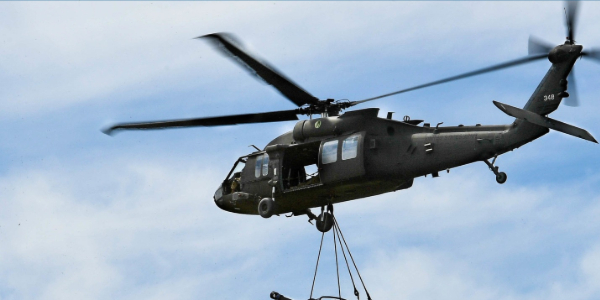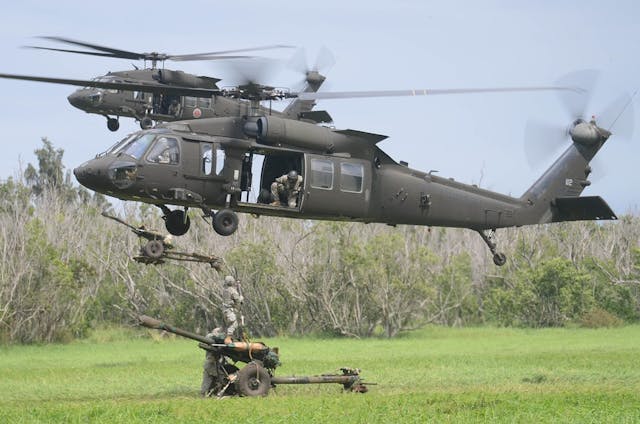The Role of Aircraft in Forming Global Transport and Profession Characteristics
The evolution of airplane has actually indelibly changed global transportation and trade characteristics, promoting unprecedented degrees of connection and efficiency. Via the establishment of durable air freight networks, businesses can currently navigate international markets with impressive rate and agility, therefore redefining supply chain methods. Nevertheless, this change is not without its difficulties, as the air travel market comes to grips with sustainability problems and regulative pressures. As we explore the complex impacts of aircraft on worldwide trade, it is crucial to think about exactly how these variables will certainly form the future landscape of air travel and its duty in the economic climate.

Advancement of Air Transport
The development of air transport has been marked by significant technical developments and technologies that have changed the means people and items cross the globe. From the Wright bros' first powered flight in 1903 to the development of supersonic jets, each landmark has actually underscored the unrelenting search of efficiency and speed in flight. Early airplane were primarily rudimentary, restricted by engine power and structural stability. Nevertheless, the introduction of advanced products and aerodynamics in the mid-20th century led to considerable renovations in aircraft safety, reliability, and efficiency. uh 60.
The last part of the 20th century witnessed the introduction of business aviation as a sensible setting of transportation, identified by the intro of jet engines, which revolutionized air traveling by dramatically decreasing flight times. Additionally, innovations in navigating and interaction modern technologies have actually improved functional performance and security, permitting more complex flight paths and schedules. The increase of air freight in parallel with passenger solutions has actually additionally highlighted the flexibility of air travel. As we aim to the future, arising innovations such as electrical and self-governing aircraft pledge to redefine the air transportation landscape, making sure continued evolution and adjustment to global needs.
Effect on Global Trade
Air transportation has exceptionally reshaped international trade by promoting the swift movement of items across vast distances. This expedited logistics capacity enables businesses to react rapidly to market needs, thus improving supply chain efficiency. The capacity to move perishable items, high-value items, and time-sensitive products has actually opened up brand-new markets and opportunities for different markets, significantly affecting profession patterns.
Moreover, the advancement of air cargo networks has actually fostered globalization, allowing firms to source materials and products from different parts of the world effortlessly. This interconnectedness lowers lead times and prices, allowing services to continue to be affordable in a significantly worldwide marketplace. Furthermore, air transportation plays a crucial role in e-commerce, where customer expectations for quick shipment have driven a surge popular for air freight services.
The influence of airplane on international trade reaches the production of critical trade paths, connecting areas and facilitating international partnerships. Nations that buy air transportation framework usually experience boosted financial development and raised international direct investment. On the whole, the advancement of air transport has not only transformed the logistics landscape yet has additionally become an important component in the dynamics of global profession.

Financial Advantages of Aviation
A robust aviation industry generates substantial economic benefits, adding to job production, tourist, and overall financial growth - uh 60. The aeronautics industry sustains numerous work worldwide, ranging from direct work in flight terminals and airlines to indirect functions in sectors such as hospitality, transport, and logistics. According to industry reports, for every single work in the aeronautics market, roughly 3.5 additional work are developed in the wider economy
Tourism is a pivotal aspect of the economic advantages stemmed click for source from aeronautics. Flight promotes international tourism, allowing travelers to discover diverse locations, which in turn promotes neighborhood economic climates. Countries that buy their aeronautics infrastructure frequently experience boosted vacationer arrivals, resulting in higher spending on services such as hotels, attractions, and restaurants.

Furthermore, aviation enhances international connectivity, making it click now possible for services to access brand-new markets and resources effectively. This connection cultivates global trade, enabling the rapid motion of products, which is crucial in today's globalized economic situation. Because of this, markets such as ecommerce and manufacturing advantage tremendously from reliable air transportation, more driving economic development. Generally, the aviation sector stays a keystone of economic vitality, emphasizing its essential role in forming contemporary economies.
Obstacles Dealing With the Aeronautics Industry
Browsing an intricate landscape of regulative, ecological, and economic obstacles, the air travel sector deals with significant obstacles that intimidate its sustainability and development. Laws surrounding safety and security and protection are continuously developing, demanding continuous conformity and adjustment from airline companies and manufacturers (uh 60). This can lead to increased operational expenses and source appropriation that interferes with development and growth initiatives
Furthermore, environmental worries have ended up being extremely important, with expanding scrutiny over carbon discharges and sound pollution. The industry is under stress to take on greener technologies and practices, which typically need significant financial investment in r & d. Stabilizing these environmental obligations with the need for air travel offers a significant obstacle.
Economic variations, such as climbing gas prices and geopolitical unpredictabilities, even more complicate the landscape. Airlines frequently grapple with unstable operating expense and changing passenger demand, which can affect profitability and long-lasting preparation. Labor shortages and skill voids in crucial locations add an additional layer of intricacy, preventing functional performance.
Eventually, resolving these multifaceted difficulties is necessary for the aeronautics industry to maintain its pivotal role in global transport and profession, while guaranteeing durability and versatility in an increasingly open market.
Future Patterns in Flight
Moving and emerging technologies customer preferences are positioned to improve the future of flight dramatically. The combination of expert system and maker discovering is expected to boost functional efficiency, streamline airport terminal procedures, and improve client service. Predictive analytics will certainly assist in more exact demand projecting, enabling airline companies to optimize trip schedules and rates models.
Sustainability is becoming a key motorist in air traveling, with the air travel sector increasingly concentrated on reducing carbon discharges. Innovations in aircraft layout, such as hybrid and electrical propulsion systems, are being checked out to satisfy ecological targets. In addition, the fostering of lasting air travel fuels (SAFs) is anticipated to play a crucial function in achieving net-zero discharges by 2050.
Consumer choices are moving towards individualized travel experiences. Airline companies are spending in sophisticated information analytics to customize services and enhance client involvement, ensuring an extra tailored journey from booking to arrival. In addition, the rise of remote job might bring about increased demand for leisure travel, as individuals look for to incorporate job and getaway.
Verdict
The advancement of air transport has transformed worldwide profession, producing substantial economic benefits while additionally presenting difficulties that require strategic management. The continuous adjustment of the aeronautics industry will be necessary for maintaining its contributions to the global economic climate.
The latter component of the 20th century saw the introduction of business aeronautics as a viable mode of transportation, defined by the introduction of jet engines, which changed air travel by considerably reducing flight times. The surge of air cargo in parallel with traveler solutions has further underscored the check out here flexibility of air travel. Furthermore, air transport plays an important function in ecommerce, where consumer expectations for fast delivery have driven a surge in need for air products solutions.
Generally, the advancement of air transport has not only transformed the logistics landscape but has also become a vital part in the characteristics of worldwide profession.
Sustainability is becoming a vital vehicle driver in air traveling, with the aviation industry progressively concentrated on minimizing carbon emissions.
Comments on “UH 60 Black Hawk Helicopter Versions and Their Usages”